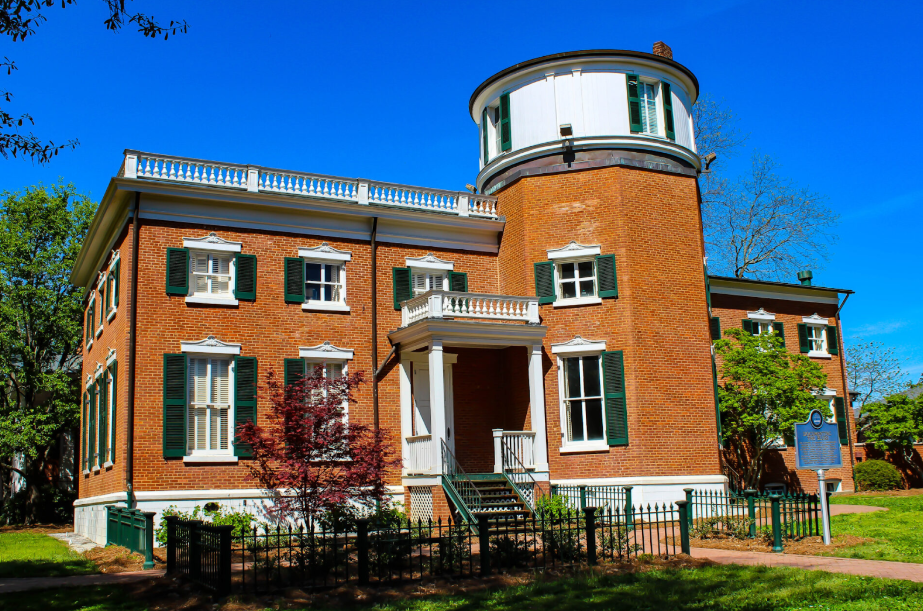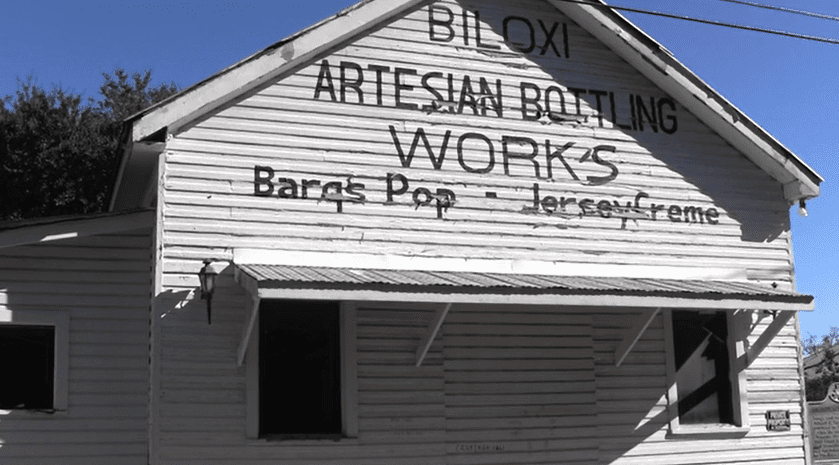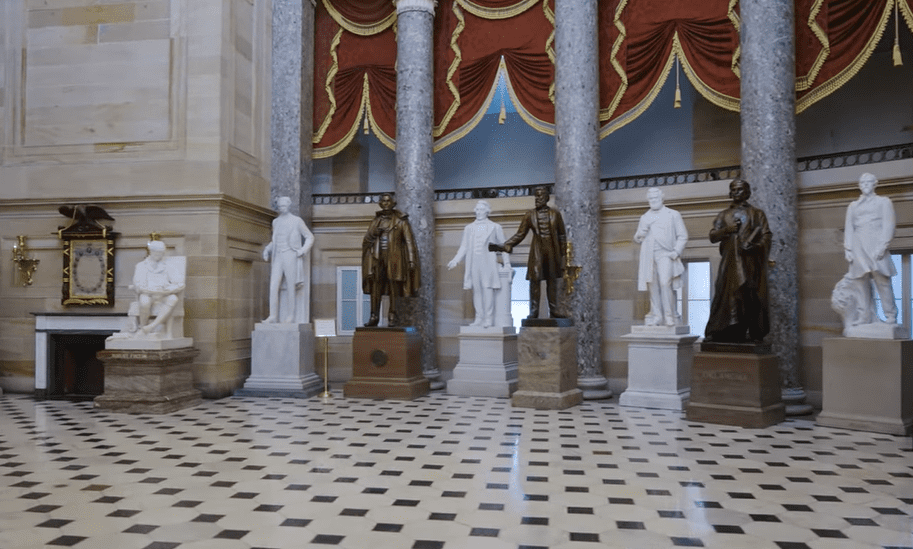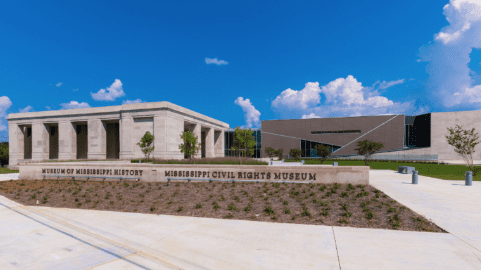
- Founded in 1977, this academic institute seeks to “tell the stories of the most storied place.”
In his book The World’s Largest Man: A Memoir, noted author and Mississippi native Harrison Scott Key gives a sibylline definition of the South. “The South is a strange place,” he writes, “one that can’t be fit inside a movie, a place that dares you to simplify it, like a prime number, like a Bible story, like my father.”
Perhaps nowhere is this more true than in Mississippi. Most readers will be more familiar with the oft-repeated William Faulkner quote: “To understand the world, you must first understand a place like Mississippi.” We like this quote so much, in fact, that you’ll find it on stickers, T-shirts, and tea towels all over the state. We like it because we believe it to be true. Mississippi, in many ways, is a microcosm of the rest of the South. The things that are true of the South are, in large part, especially true of Mississippi, for better or worse.
The University of Mississippi in Oxford—where Faulkner spent most of his life—is therefore a fitting home for the Center for the Study of Southern Culture. The center was the first of its kind dedicated to the study of the U.S. South. Founded in 1977, it opened in the fall of that year with a three-day symposium on Eudora Welty that featured Welty herself.
According to its website, the center’s mission is to “document, interpret, and teach about the U.S. South through critical research and public engagement.” It executes this mission through a variety of programming, principally through its academic curricula. Students may earn a B.A. in Southern Studies, an M.A. in Southern Studies, or an M.F.A. in Documentary Expression. The creation of the center made Ole Miss the first institution to offer an undergraduate major in Southern Studies.
The center is intentionally an academic institute rather than a department of the university, meaning the curriculum is interdisciplinary, and taught by faculty from a variety of fields. Southern Studies faculty members often have joint appointments in other academic departments, such as English, History, or Sociology.
The center’s founding director was Vicksburg native and renowned folklorist William Ferris, who in 1997, was appointed chair of the National Endowment for the Humanities (NEH) by President Bill Clinton. Charles Reagan Wilson, an eminent scholar of the U.S. South, then led the center until 2007. History professor Ted Ownby retired as center director in 2023 and was succeeded by Kathryn McKee, an expert on Southern and 19th-century American literature.
The center also has three divisions, or institutes, that advance its mission in more specific ways.
The primary driver of the center’s M.F.A. program is the Southern Documentary Project, or “SouthDocs,” under the direction of Andy Harper. Stories and storytelling are often associated with Mississippi and the broader South, and SouthDocs exists to “[tell] the stories of the most storied place,” serving and teaching graduate and undergraduate students in the Center for the Study of Southern Culture and showcasing student documentary films each semester.
No conversation about Mississippi or the South can be considered complete until someone has mentioned food. The Southern Foodways Alliance (SFA) surveys the diverse food cultures of the South through a variety of media under the direction of John T. Edge. SFA’s Gravy journal and podcast explores topics like, “What Makes Gumbo … Gumbo?”, “Alabama Loves Red Snapper,” and “America’s Lost Peanut and the Price of Bringing it Back.”
Finally, the center’s bimonthly Living Blues magazine has defined excellence for blues journalism worldwide. Living Blues was America’s first blues publication. Founded in Chicago in 1970 to help document and preserve the African American blues tradition, the magazine was acquired by Ole Miss in 1983. Graduate students in the Center for the Study of Southern Culture often serve as interns and contributors for Living Blues. The likes of B.B. King and Little Milton have graced the magazine-sponsored annual Blues Today Symposium.
The Center for the Study of Southern Culture stands as a testament to the enduring anthropological complexity and richness of the South. In the spirit of Mississippi itself, the center invites exploration, resists simplistic and one-dimensional narratives, and challenges us to see the South not as a monolith but as a dynamic region with a profound sense of place—one that continues to inspire us, confound us, and call us home.











